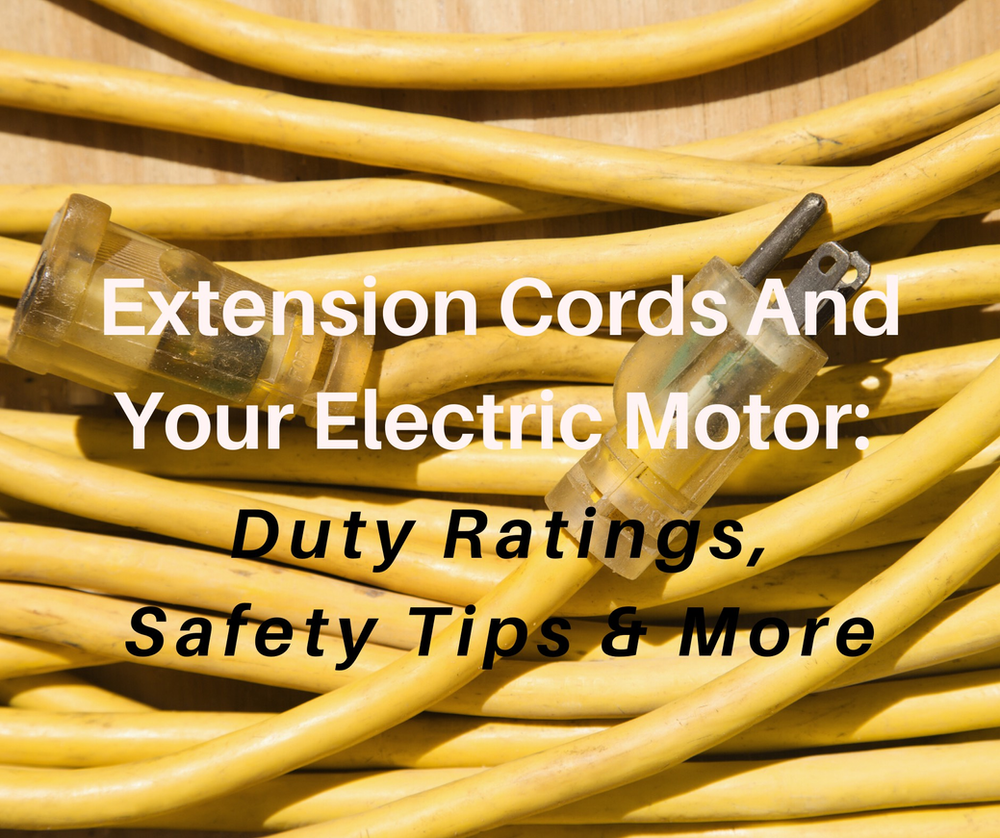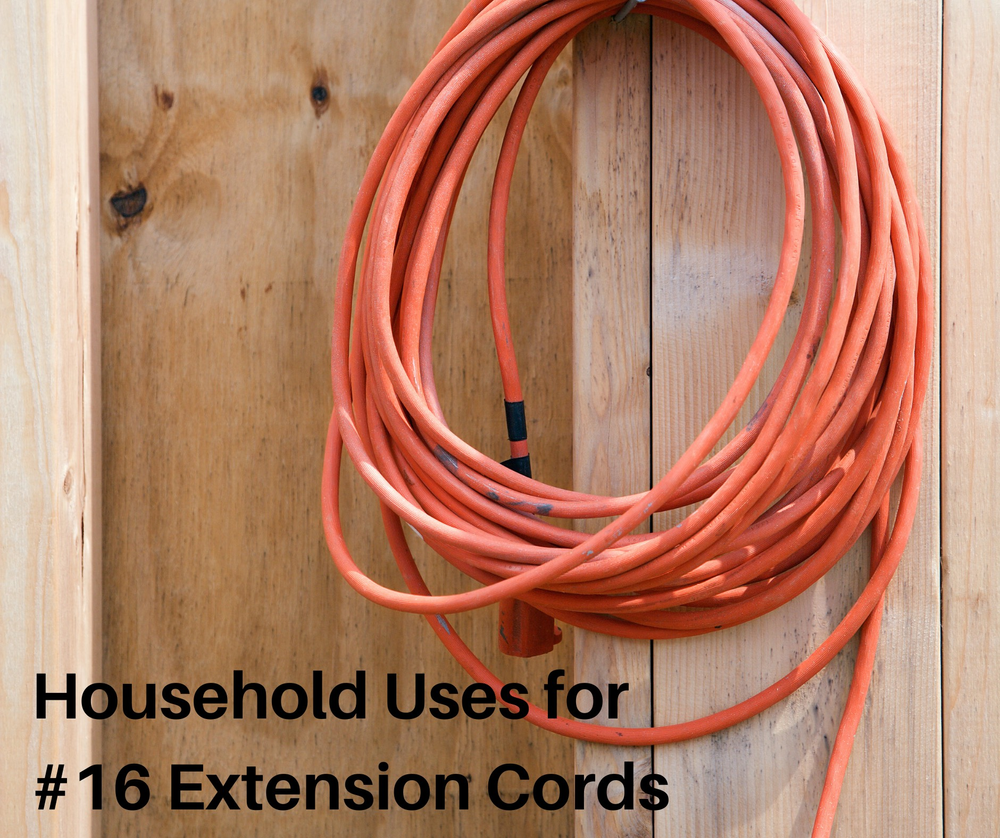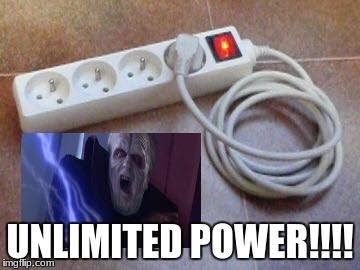
Extension Cords And Your Electric Motor: Duty Ratings, Safety Tips & More
Do you know how to choose the right extension cord for your next DIY project?
Extension cords come in various lengths, and many different power carrying capacities.
While electrical extension cords are a part of our everyday lives, many of us don’t know how to choose the correct one for the job at hand.
And using the wrong cord can be dangerous.
To determine what type of cord you need, you should be able to answer the following questions:
1. How long do you need your extension cord to be?
2. How much power are you going to use?
Once you have answers to the two questions above, you will be able to determine how heavy-duty your extension cord needs to be.
Learn more about duty ratings for extensions in the section below.
Duty Ratings For Extension Cords
It’s important for you to know that extension cords have duty ratings depending on their length and wire diameter.
Here are a few helpful pointers about extension cord amp ratings:
- Cords with a larger wire diameter can handle more amps
- Longer cords have a lower amp rating
The more amps, the more power
- All electrical wire, including extension cords, use a number system to designate how many amps the wire can safely handle.
Read on to find common types of cords and learn how they’re rated.
Common Types Of Extension Cords
Extension cords are labeled by numbers, and each number corresponds to a certain amperage.
The most common extension cords are…
#16 for 10 amps
#14 for 15 amps
#12 for 20 amps
So, what can you use each type of extension cord for?
Keep reading to find out now.
Everyday Uses For A #16 Extension Cord

If you go to a hardware store and purchase a basic orange extension cord, it will be #16 wire and work for up to 10 amps.
A #16 cord is good for many around-the-house uses:
- Christmas lights
- Most yard tools
- Small appliances
And more.
While #16 cords are great for everyday household uses, they fall short for bigger jobs.
You will start to have problems when you are running longer distances or if you are powering something with an electric motor.
Learn about the dangers of using the wrong extension cord for electric motors in the next section.
The Dangers Of Using The Wrong Extension Cord For Your Electric Motor
When an extension cord is being used close to its rated capacity, it can start to heat up. And if you have a long cord, running at the maximum rating, it can start to overheat.
This is very dangerous as it can not only damage your equipment, but it can also start an electrical fire.
Since household circuit breakers are rated for 15 or 20 amps, the breaker will not protect the cord or the equipment since the cord overloads at 10 amps and the breaker needs 15 or 20 amps to trip.
Electric motors on extensions can be a problem because a motor requires about three times its normal running power to get started.
Even if the cord is adequate for the normal running of the motor, it might not be able to get the motor started.
Attempting this will potentially damage both the motor and the cord.
So, how can you ensure your own safety and the quality of your equipment?
Keep reading find out the right extension cord to use when working on your electric motor right now.
The Right Extension Cord For Your Electric Motor
Follow these simple guidelines so you can avoid overloaded cords and damaged equipment:
- Use a heavy-duty cord for high load applications.
- Upgrade to a heavier cord if you are getting close to the load rating of the existing cord.
- If a motor struggles to start, it is not getting enough power and needs a heavier duty cord.
Now you know how to safely use an extension cord on your electric motor!
For more DIY tips from electric motor experts, give us a call at 239-574-4499 or visit our shop at 958 Country Club Blvd in Cape Coral, Florida.






